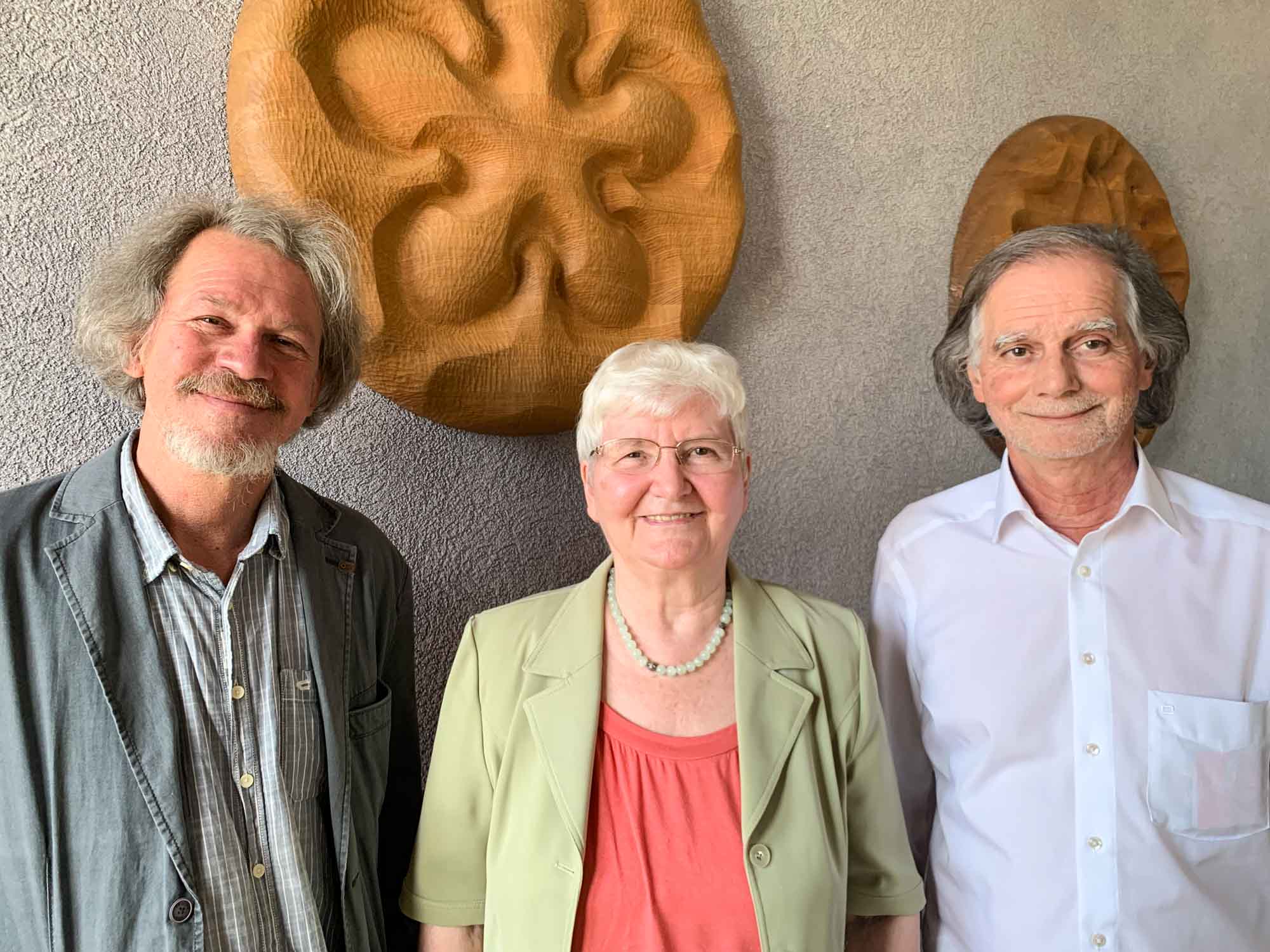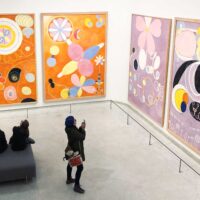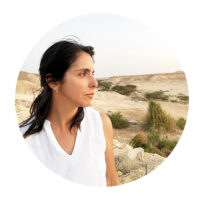The Astrology Colloquium entitled Freedom and Social Design is a project of the Mathematical-Astronomical Section of the Goetheanum and has been taking place since the spring of 2022. Charles Cross interviewed colloqium leaders Klaus Schäfer-Blankenhorn, Elisabeth Anderegg, and Jakob Fuchs.
How did the Astrology Colloquium come about?
Klaus Schäfer-Blankenhorn At a colloquium of the Mathematical-Astronomical Section in June 2021, I asked the section leader, Dr. Oliver Conradt, if we could also deal with astrology at some point. There is so much resistance and prejudice towards astrology, but are these justified? Dr. Conradt welcomed this idea and I agreed to work on it. But I only did this because I knew about Elisabeth Anderegg and hoped to win her for this work, which fortunately happened. Without her it would not have been possible. She in turn recruited Jakob Fuchs and that is how the whole thing came about. I myself worked as a Waldorf teacher for a very long time, but I was always also an astrologer. Now, as a retiree, I’m doing more with astrology. Thirty years ago I was already thinking that it would be a great thing if anthroposophists in particular could have a conscious relationship to astrology. Using the motto ‘Astrology as an instrument of the consciousness soul’ one could do good research for a contemporary astrology and thereby cultivate the consciousness soul. The colloquium is now precisely for that. We want to know what Steiner meant by the “astrology of the fifth post-Atlantean cultural epoch” that he spoke of in Leipzig (CW 149, 1.1.1914).
Elisabeth Anderegg I love anthroposophy and astrology. I have known anthroposophy, very intensively, since I was 17, and astrology since I was 38. I am very happy that this group has found itself. I only knew Klaus in writing, but I love his books very much because I really see them as something futuristic or something completely different. This very different thing fascinated me, especially his approach of interpreting the horoscope as a path to freedom. Now we are doing research together. Statements of Rudolf Steiner about astrology are partly very critical and partly very pioneering. How can we as astrologers incorporate them and do research in this direction? I could not do astrology if I did not know anthroposophy. Astrology in Rudolf Steiner’s sense is like a search or a way to connect with higher intelligences (CW 34, September 1905). The connection between anthroposophy and astrology, for me, creates a space for a connection with the spiritual world.
Jakob Fuchs I do not come from astrology but from social design. For more than 20 years I worked with communities on issues of working together. How can an individuality develop and become a source of social warmth in today’s world? I have almost always worked with the twelve Soul Moods, the poetry of Rudolf Steiner connected to the signs of the zodiac. There, twelvefoldness plays a role, as do the planetary qualities and sevenfoldness. Otherwise, I have actually only experienced astrology as a person seeking counsel, so I have no profound knowledge there. But the title of the astrology colloquium ‘Freedom and Social Design’ appealed to me very much. That is one of my primary concerns. I immediately sensed that research is being done on how we can fruitfully come to principles, formative forces, and qualities of imagery out of the astrological point of view, in order to develop ourselves into freedom. How can this contribute to social design and responsibility? That inspired me and that’s where we are heading now.
E.A. I have also worked in the social field and with Jakob. That’s how this connection came about. Astrology can do a lot in the social sphere.
The colloquium has now been in existence for a year. Can we talk about a few highlights? What has happened so far?
K.S.B. To this day, people still skeptically ask what astrology is doing at the Goetheanum: surely it has no place here. Oliver Conradt, however, has emphasized in the circles of astronomers that it belongs to the overall field of the Astronomical Section and is a real research concern. Last year at our St. John’s colloquium there were six or seven of us, some of whom didn’t know each other. Elisabeth and I were the only astrologers. It was terribly hot. I kept thinking that we wouldn’t be able to stand it for four hours because of the heat. We were at the very top of the building at that time, in the south studio. But we didn’t even notice the heat because the exchange was so invigorating and refreshing. The atmosphere was so thick that the time flew by. And above all, I had the distinct feeling afterwards: now we have arrived at the Goetheanum!
E.A. This colloquium has grown continuously. Now there are 14 participants. A highlight was and is that Jakob Fuchs brought the moods of Rudolf Steiner so strongly into the living and into astrology. A second highlight for me was how Michael Jacobi, from the Institute for Flow Sciences, used musical criteria to measure and assess the size of planetary aspect orbs. That was really a highlight that none of us expected. 1
J.F. For me what is most engaging and illuminating is the question of how we can work together so that we come close to working intuitively? That means not structuring things all the way through, not approaching questions only with the objective in mind. For me, that’s the character of this research colloquium—the research mentality and attitude that we’ve been able to sustain so far. We will see how we develop this further. For me, the work has really remained in the lifestream up to now. Anyway, the question is what the goal should or will be in the end: Do I come here and then, out of this work, create again individually? What can I bring into it? What can we make fruitful, including for an interested public? I find this living experience of tension wonderful. There are so many different people sharing something with each other. In terms of content, everything has been lovely to me so far, and many things have been stimulating, new, and have made sense to me. These are always seeds that we can develop further, that will grow and mature.
E.A. Members of this colloquium make contributions themselves. I think that is very nice. When we announced our colloquium in the Section, we used a quote from Rudolf Steiner that astrology must experience a resurrection through the Christ impulse (CW 149, 1.1.1914). Resurrection, after all, can only be with a living being. To discuss this question is possible for me in this group. It would not necessarily be possible in a conventional astrological circle.
What questions or topics in this direction of ‘astrology of the future’ are still to come?
K.S.B. Since we are trying to take up an unspoken research mandate of Rudolf Steiner, there is a wealth of work to be done. Ultimately it is also about the deeply anthroposophical question: What does freedom mean?
E.A. What I think will be important in the future is that we examine central quotations from Rudolf Steiner on astrology in groups, that each group works on a corresponding passage of text and we then consider: Are we already doing this or not yet? A future topic will be the question of intuitive astrology. What did Steiner mean by this in September 1905? (CW 34) He said that in the past moral intuition was a group thing and today it is one hundred percent individual. One must create space for something to happen, to occur, in the individual. For me, that is a powerful goal for this colloquium in the future.
J.F. For me, the central goal is also: How can a milieu be formed, a shell, a space, in which spirit-presence can happen? Particularly in the formation of ideas as well. What does a process that makes this possible actually look like? Personally, I am convinced that Rudolf Steiner’s Cancer Mood, as we express it in ‘Ways to Quality’, describes this process: how to form this space, so to speak. We also talked about this initially in the colloquium. I think it is a method, perhaps even metamethod, in this verse of Steiner. That it must be a poem is also clear: you can’t just nail something like that down. That is one of the central goals for me. In that sense, I would simply like to join Elisabeth and the research she has done so far, and Klaus in his books, with the goal of creating an intuitive development space with the help of astrological points of view.
E.A. Ultimately, I am concerned that astrology enables freedom for people that becomes effective in the social sphere.
Translation Charles Cross
Title image Klaus Schäfer-Blankenhorn, Elisabeth Anderegg and Jakob Fuchs






How can I connect with y’all?
You can write me: klaus.schaefer-blankenhorn@alisio.de and we will see how it could work. Maybe we could have a zoom-talk . Thank you for your interest. I realized only today that the intervie already has been published, so I didn’t answer before.
Greetings Klaus
Are you in contact with The Star House https://www.thestarhouse.org/new-moon-arc and/or other American initiatives in Astrosophy?
Not till now, but we are actually very interested in entering in contact with these groups.thank you.
Klaus